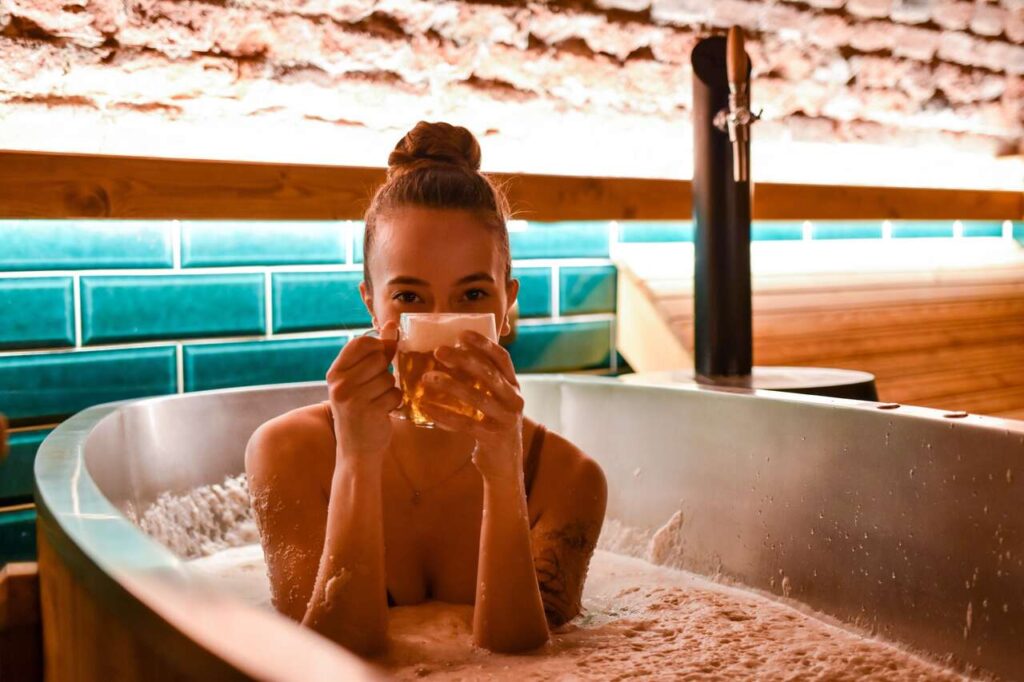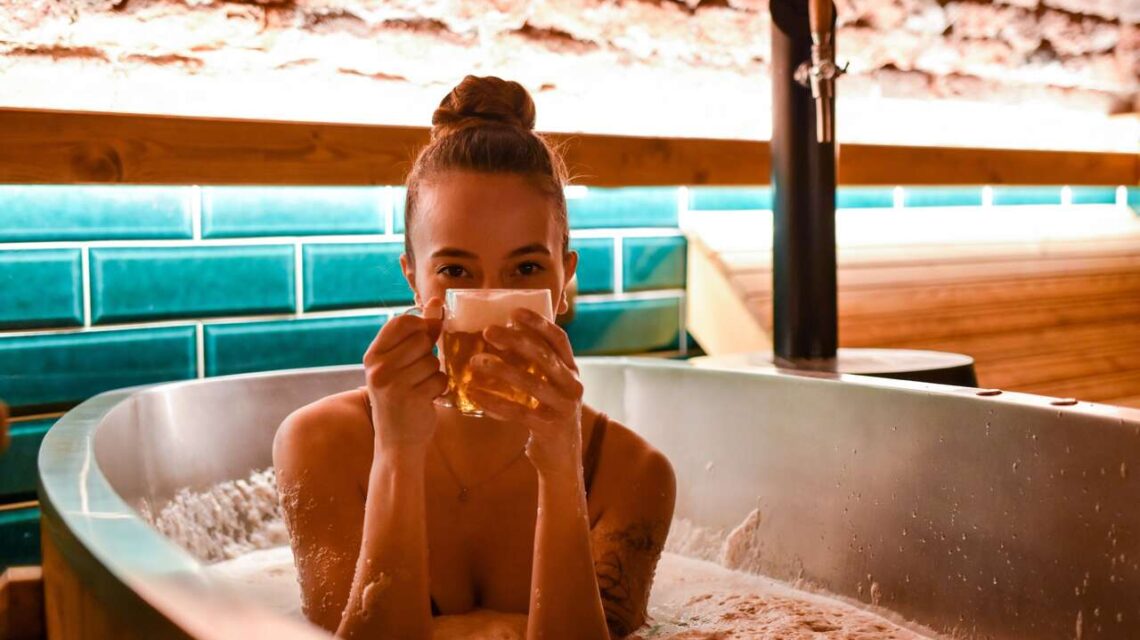
In an era where wellness trends oscillate between the archaic and the avant-garde, the Czech Republic has pioneered a paradox, spas that marinate patrons in alcohol. This is not Bacchanalian indulgence repackaged for Instagram, but a practice rooted in biochemical science.
Historical Precedents Meet Modern Metrics
The resurgence of alcohol-based hydrotherapy traces to October 2022, when Prague’s Pivni Lázně Beer Spa hotel reopened with whiskey-barrel tubs and a proprietary blend of dark ale and organic hops. This trend’s lineage extends to 13th-century Bohemian monasteries, where monks prescribed fermented baths for humoral balance.
Bookings for alcohol-infused spas have surged according to the Czech Tourism Board, driven by luxury travelers seeking alternative and novel rejuvenation methods.
The Biochemistry of Bathing in Spirits
Dr. Eliška Nováková’s peer-reviewed study in dermatological therapeutics mentions that ethanol’s enhances antioxidant absorption—notably the resveratrol in red wine baths. While tannins in oak-aged spirits claim to improve micro-circulation.
Luxury Redefined: From Champagne to Absinthe
Karlovy Vary’s Grand Spa Resort epitomizes opulence with its Champagne Hydrotherapy. a 75% Chardonnay and 25% Pinot Noir blend heated to 38°C, followed by a post-soak tasting at €500 per session. Meanwhile, Brno’s Absinthe Mist Room utilizes essential oil diffusers. 68% of participants reported euphoric relaxation. These offerings cater not only to hedonists, but also to solitary seekers of clinical-grade immersion.
Some critics dismiss alcohol spas as gimmicks, yet their DNA is very Czech. The nation’s 19th-century beer baths in Třeboň were communal rituals, today’s it’s been modernised into self-care. This is not only an indulgence it is cultural evolution, measured by the litre.
We urge JollyHoli readers to document their responses and separate fact from folklore.



